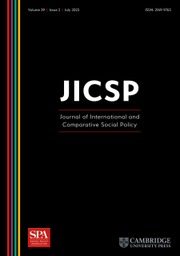This article was published with incomplete author affiliations, a missing acknowledgements section and a number of typographical errors.
In the original version, the affiliation of Tomy Ncube was given as Center for International Development Innovation (CIDI), Ryan Institute, University of Galway, Ireland and the affiliation of Una Murray was given as School of Geography, Archaeology and Irish Studies, University of Galway, Ireland. The correction affiliation for both authors is Center for International Development Innovation (CIDI), Ryan Institute, University of Galway, Ireland and School of Geography, Archaeology and Irish Studies, University of Galway, Ireland. This had now been corrected and the PDF and HTML have been updated.
In the first paragraph of page 4, the phrase ‘backed by adequate legislative, regulatory framework, and appropriate institutional frameworks that promote and facilitate its realisation’ should have read ‘backed by adequate legislative, regulatory, and institutional frameworks that promote and facilitate its realisation’.
In the third paragraph of page 4, the phrase ‘Mumtaz and Kühner (2025) further categorise welfare systems based on their effective or ineffective systems’ should have read ‘Mumtaz and Kühner (2025) further categorise welfare systems based on their effectiveness or ineffectiveness’.
In the first paragraph of page 6, the phrase ‘they appear insufficient to address all economic and social challenges faced by the extremely poor face in some scenarios’ should have read ‘they appear insufficient to address all economic and social challenges faced by the extremely poor in some scenarios’.
In the second paragraph of page 7, the phrase ‘CD considers community members to be experts in their lives and communities, and thus values community wisdom and ability to play their future’ should have read ‘CD considers community members to be experts in their lives and communities, and thus values community wisdom and ability to plan their future’.
In Figure 1, ‘Pressure to leverage the reach of IFS’ should have read ‘Pressure to leverage the reach of ISP’.
Lastly, the following acknowledgements section was missing from the original article:
This paper was written within the framework of an Irish Research Council (IRC) funded project on Migration, Climate Change and Social Protection (MiCASP) led by Dr. Una Murray (COALESCE/2021/75), affiliated with the Discipline of Geography at the School of Geography, Archaeology and Irish Studies and the Ryan Institute at the University of Galway. Authors also acknowledge PhD funding from the Hardiman Research Scholarship at the University of Galway.
The publisher apologises for these errors.


